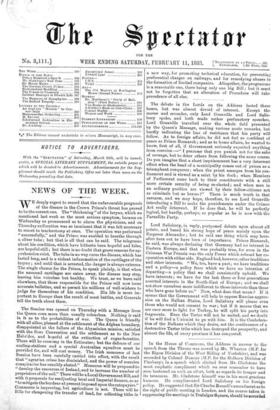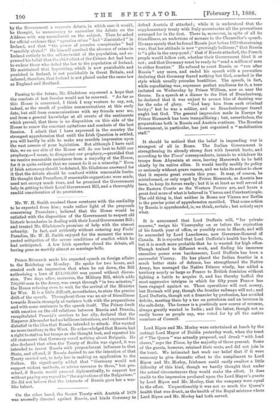In the House of Commons, the Address in answer to
the speech from the Throne was moved by Mr. 'Wharton (M.P. for the Ripon Division of the West Riding of Yorkshire), and was seconded by Colonel Duncan (M.P. for the Holborn Division of Finsbury), in a speech which elicited from Mr. Gladstone the most emphatic compliment which we ever remember to have seen bestowed on such an effort, both as regards its temper and its terseness. Mr. Gladstone himself was in his most gracious humour. He complimented Lord Salisbury on his foreign policy. He suggested that Sir Charles Russell's amendment as to the right of public meeting in London, and the course taken in suppressing the meetings in Trafalgar Square, should be worded.
by the Government a separate debate, in which case it would, he thought, be unnecessary to encumber the debate on the Address with any amendment on the subject. Then he asked for official evidence that "agrarian crime" had " diminished " in Ireland, and that "the power of coercive conspiracies" had "sensibly abated." He himself ascribed the absence of crime in Ireland entirely to the self-restraint of the population, and ex- pressed his belief that the chief effect of the Crimes Act had been to endear those who defied the law to the population of Ireland. He maintained that boycotting, which is now punishable and punished in Ireland, is not punishable in Great Britain, and inferred, therefore, that Ireland is not placed under the same law as England and Scotland.



































